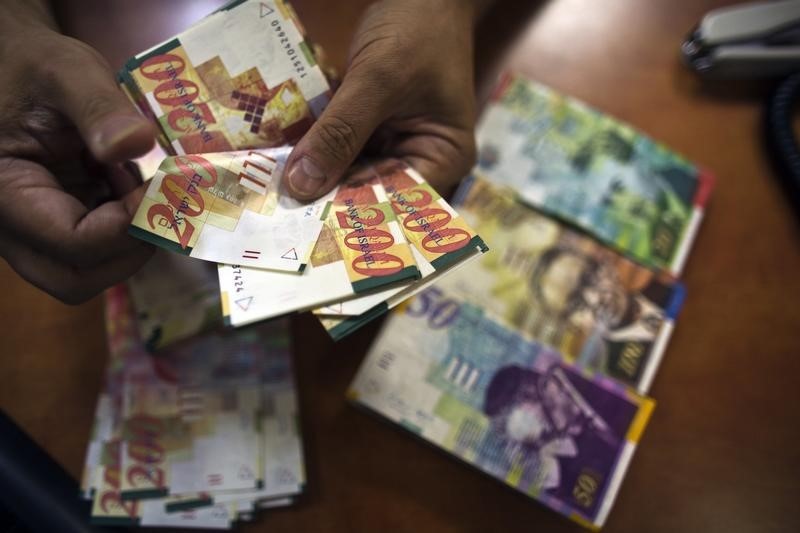Moody’s downgrades Senegal to Caa1 amid rising debt concerns
Investing.com -- On February 24, 2025, the Monetary Committee of the Bank of Israel decided to keep the interest rate steady at 4.5%. This decision comes as the country’s economic activity continues to moderately recover amid geopolitical developments.
In the fourth quarter of 2024, the growth rate moderated due to an increase in most domestic uses, which were largely fulfilled through increased imports due to supply constraints. The previous GDP data were revised, indicating a growth of 1 percent in 2024.
The annual inflation rate rose to 3.8 percent, surpassing the upper limit of the target range, partially due to tax increases. However, inflation is predicted to fall within the target range in the second half of the year.
The labor market remains tight, as suggested by unemployment, job vacancy, employment, participation, and wage data. Since the last interest rate decision, the shekel has appreciated by 1.9 percent against the US dollar, 1.3 percent against the euro, and 1 percent in terms of the nominal effective exchange rate.
Israel’s risk premium, measured by the 5-year CDS price and the spreads on dollar-denominated government bonds, continued to decrease but is still higher than in the prewar period. Home prices rose by 7.3 percent in 2024. The construction industry continues to be affected by labor shortages, but the gap between the current number of people employed in the sector and the number before the war has narrowed.
The Monetary Committee’s policy, in light of the ongoing war, aims at stabilizing the markets and reducing uncertainty, in addition to maintaining price stability and supporting economic activity. The path of the interest rate will be determined based on the convergence of inflation to its target, continued stability in the financial markets, economic activity, and fiscal policy.
The Consumer Price Index for December declined by 0.3 percent, while the index for January increased by 0.6 percent. The inflation rate in the past 12 months was 3.8 percent, above the upper limit of the target range. According to forecasters, inflation is expected to enter the upper portion of the target range in the second half of the year.
The first estimate of National Accounts data for the fourth quarter of 2024 shows that growth slowed to 2.5 percent. The growth rate of nominal wages accelerated in December, completing an increase of 6.8 percent since September 2023.
The increases in the domestic equities market continued during the reviewed period. Israel’s risk premium, measured by the 5-year CDS and by the dollar-denominated government bond spread, continued to decline, although its level remains higher than the prewar period.
Globally, economic activity continued to expand in the fourth quarter, though at a more moderate pace. The global composite Purchasing Managers Index for January declined, but continued to indicate moderate expansion of economic activity. Inflation in the eurozone increased in January beyond expectations, to 2.5 percent, with core inflation remaining unchanged at 2.7 percent. Central banks in many advanced economies continued to lower interest rates. The ECB lowered its rate by 25 basis points. Following three consecutive interest rate reductions, the Federal Reserve left its rate unchanged in January.
This article was generated with the support of AI and reviewed by an editor. For more information see our T&C.
